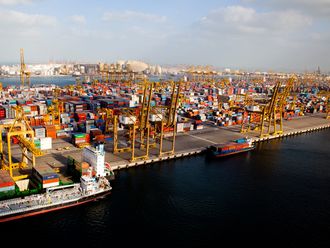Fasting during Ramadan is one of the main areas that reflects the nature of Islam as a religion of ease.
In fact, the Quranic Verse of Ease is included in the verses that talk about fasting in Sourat Al Baqarah.
Verse 185 of Al Baqarah says, "Ramadan is the month during which the Quran was revealed, providing guidance for the people, clear teachings, and the statute book. Those of you who witness this month shall fast therein. Those who are ill or travelling may substitute the same number of other days. God wishes for you convenience, not hardship, that you may fulfil your obligations, and to glorify God for guiding you, and to express your appreciation."
The application of this verse is known with regards to the fasting of sick people, travellers, menstruating women, pregnant and breast-feeding women, the elderly and those who work in physically exhausting professions.
One of the questions that often arise in Ramadan is related to fasting when the days are very long.
Muslims all over the world are required to fast during the holy month of Ramadan. The fast starts every day from sunrise until sunset, as specified in the Quran, "You may eat and drink until the white thread of light becomes distinguishable from the dark thread of night at dawn. Then, you shall fast until sunset." (Verse 187 of Al Baqara).
The duration of the fast is estimated at 12 to 14 hours in Makkah, which is located on latitude 22 and Al Madina on latitude 24.
Since all Arab countries and most Islamic countries are located between latitude 10 in the south and latitude 35 in the north, fasting hours in these countries do not exceed 16 hours in most cases during the summer - June to September - while other seasons have shorter daytime hours. In general, fasting in these geographic areas is not hard regardless of the duration of daytime.
Meanwhile, Muslims in Europe, North America and Northern Asia have shorter days during the winter, mostly not exceeding 10 hours, but have up to 20 hours of daytime during the summer.
People living in cities such as Rome at latitude 43, Paris at 50, London at 51, Scotland at 56, and Oslo and Stockholm at 60 have much longer hours to fast during the summer.
Thus, Muslims must resort to jurisprudence, which is a main part of Islamic legislation, provided it is done by qualified scholars.
These scholars came up with many solutions, which may be summed up in three valid jurisprudences.
Since people differ in health conditions and their individual abilities to tolerate fasting, as well as their closeness to the moderate area, which is between latitudes 10 and 35, they can benefit from any of these three solutions.
The first of these solutions is to fast the whole day according to local time, for those who are able to do so, keeping in mind that reward is proportional with difficulty. Saudi scholars issued fatwas to this effect, and so did the well-known late Shaikh Hassanain Makhlouf.
The second option is for people who find it hard to fast for very long hours. Those people can estimate daytime hours according to the nearest moderate country, especially if it was an Islamic country. For example, if fasting hours in Paris or London exceeded 19 hours, they may fast according to the local time in Algiers or Rabat, which usually have less than 17 hours of sunshine.
People who wish to follow this option also have the third solution, which is following the fasting hours in Makkah or Al Madina, which are mostly less than 15 hours. This solution is supported by many scholars as well as fatwas from Al Azhar, Kuwait and renowned scholars Sayed Sabiq and Mustafa Al Zarqaa.
Muslims who live in places where they do not have regular sunrises and sunsets should estimate fasting hours based on the cities of Islamic legislation, which are Makkah and Madina.
All these solutions are based on evidence from the Quran and the Hadith of Prophet Mohammad (Peace Be Upon Him). They are also logical solutions that help Muslims fulfil their religious duties without bearing intolerable difficulties.
Dr Ezzeddine Ebrahim is a cultural adviser at the Ministry of Presidential Affairs.








